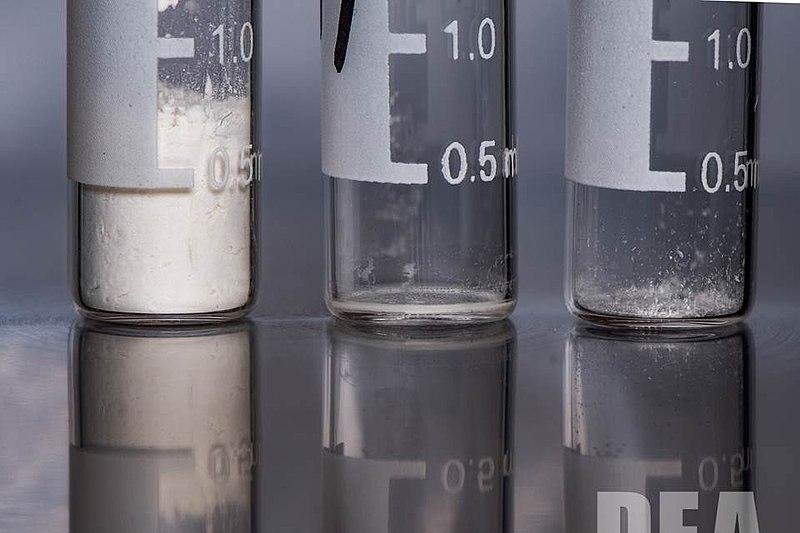Comparison of lethal heroin, carfentanil and fentanyl doses according to the United States Drug Enforcement Administration. The Treasury Department, Britain and the Netherlands Wednesday sanctioned two Dutch nationals and a British national for allegedly using the dark web to sell illegal "fentanyl analogues" and synthetic opioids.
Photo By U.S. DEA via Wikimedia Commons.
Nov. 9 (UPI) -- The U.S. Treasury Department, acting in coordination with the Netherlands and Britain Wednesday, sanctioned Internet-based suppliers of illegal fentanyl.
Dutch nationals Alex Adrianus Martinus Peijnenburg and Martinus Pterus Henri De Koning were sanctioned along with British national Matthew Simon Grimm, according to the Treasury Department. Nine entities were also sanctioned.
"The Treasury Department will continue to deploy its counternarcotics authorities to disrupt those involved in the fentanyl global supply chain," Brian E. Nelson, under secretary of the Treasury for Terrorism and Financial Intelligence, said in a statement. "Treasury is identifying over 50 virtual wallet addresses associated with this network's drug trafficking activities as we take further action to counter the abuse of virtual currency. I would like to thank our Dutch and U.K. partners and U.S. law enforcement counterparts for their partnership and for enabling today's action."
The entities sanctioned include Dutch companies Green District B.V., Best Sport Company, Organic District B.V., Bellizo, A.A.M., Peijnenburg Holding B.V. and Best Sport Company B.V. as well as King Trade B.V.
According to the Treasury Department, Peijnenburg and De Koning allegedly "started their illicit drug trafficking enterprise on the dark web, where they engaged in the direct sale of fentanyl analogues -- acrylfentanyl, furanylfentanyl, and isobutryfentanyl -- as well as various other synthetic opioids, to U.S. consumers."
Despite being arrested in 2017 for sale and distribution "fentanyl analogues" and other synthetic opioids, the Treasury Department statement said they continued to generate millions of dollars in virtual currency from "illicit drug proceeds through a synthetic drug sales website, therealrc.com -- which was maintained by Peijnenburg.
Treasury said customers reached these illicit sites through advertisements on popular social media platforms and were able to buy the illegal drugs using bank transfers or virtual currency.















